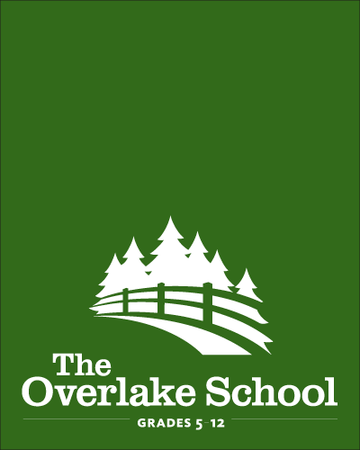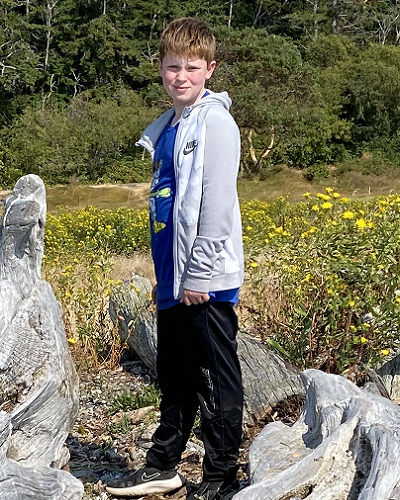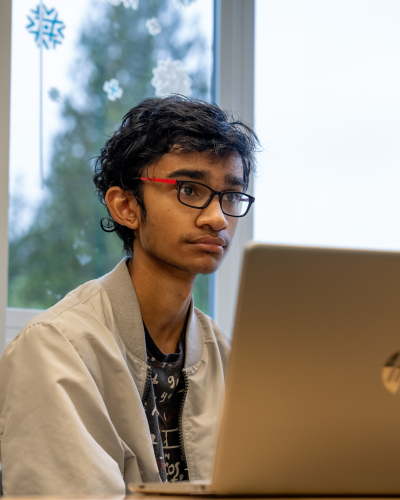Marine and Forest Ecology at Camp Orkila

Students observe and examine the shore and forest to learn about individual species in and how they live through a varity of classes and activities such as...
Marine Ecology
Beach Walk
By hiking on our beautiful beach, students observe and examine the shore community (including tidal pools, invertebrates, marine algae, and coastal wildlife) and show understanding of concepts related to tides and tidal zones. At the different coastal habitats, students explore the physical features of the beach and organisms living there. In this course, students are active participants in their own learning: they question, explore, and identify their living surroundings.
Marine Investigation
Students can participate in a variety of investigation options on the beach or in the Marine Center. The level of inquiry in the investigation will depend on the prior experience of the students in scientific investigation. Collaboration between the classroom teacher and the Orkila Director prior to camp will help guide the experience. Students can collect data about species presence and contribute to the Nature Mapping database.
Plankton
Students collect samples of ocean water and discover a universe through the guided use of microscopes. They play games to learn the role of plankton in the marine food web, invertebrate and algae life cycles, and in the production of the world’s oxygen. This class provides a solid foundation of what plankton is through hands-on exploration and reinforcing ideas in fun activities.
Marine Invertebrates
Students meet creatures from the saltwater ecosystem. Through hands-on activities, students explore how marine invertebrates have adapted to different habitats and why these critters are suited to their habitats. Depending on the tides, students will identify and get to know creatures on the beach or in the Marine Center’s touch tanks. Through interactive lessons, students will uncover the interconnectedness within the marine community.
Super Salmon
Students have the opportunity to explore Orkila’s hatchery and, seasonally, see salmon develop at different the stages of their lives. Through active role-playing and lessons, students experience the life cycle of the salmon, learn of salmons’ physical adaptations, and understand salmons’ role in the food chain. As our hatchery and Marine Center grow, students can become more involved and informed in the lives and experiences of salmon.
Forest and Aquatic Ecology
Forest
In hiking through our majestic trees, students explore Orkila’s forests and woodland ecosystems Along with seeing the forest as a whole, interdependent, ever-changing community, students play games and participate in activities to learn about individual species in the forest and how they live.
Forest with an Investigation
Students will ask a group question and perform an investigation in the Forest. Orkila instructors will guide the students through their testable experiments. The level of inquiry in the investigation will depend on the experience each group has with inquiry.
Micro-Forest
Students investigate the complexity of soil, an essential foundation of the forest. Students explore the habits and habitats of the small, fascinating world of the forest floor: slugs, mosses, lichens, centipedes, and beetles to name a few. In this class, students break down the larger concept of forest into smaller parts to see the connections among each part.
Habitat Hike
In this class students will explore three different habitats around camp. Options for exploration include Forest, Field, Pond and Near- shore habitats. Orkila instructors will guide students through these areas as students learn about the characteristics of a habitat and why it is suitable for some living creatures, but not for others. Habitat Hike is a great class to sample the different areas of camp and learn about field ecology.
Pond Study
The pond allows students to see and explore a unique and vital ecosystem. Students use dip nets, magnifying glasses, and microscopes to identify the many kinds of plant and animal life in the pond. They might investigate seasonal changes of the pond and the life cycles of the insects that make it their habitat.
Life in the Forest
“Life in the Forest” is an advanced hide-and-seek game. Students role-play plants, herbivores, omnivores, and carnivores foraging for nutrition. After the game, there is a debriefing session to recognize and evaluate students’ animal-like strategies, their adaptations, and human impact in the food chain and forest.
This is an Overnight Project. Students will depart Campus on Monday morning and arrive back on campus Friday afternoon around 5 pm.
Project Week (2024-25)
Mar 24, 2025 - Mar 28, 2025



